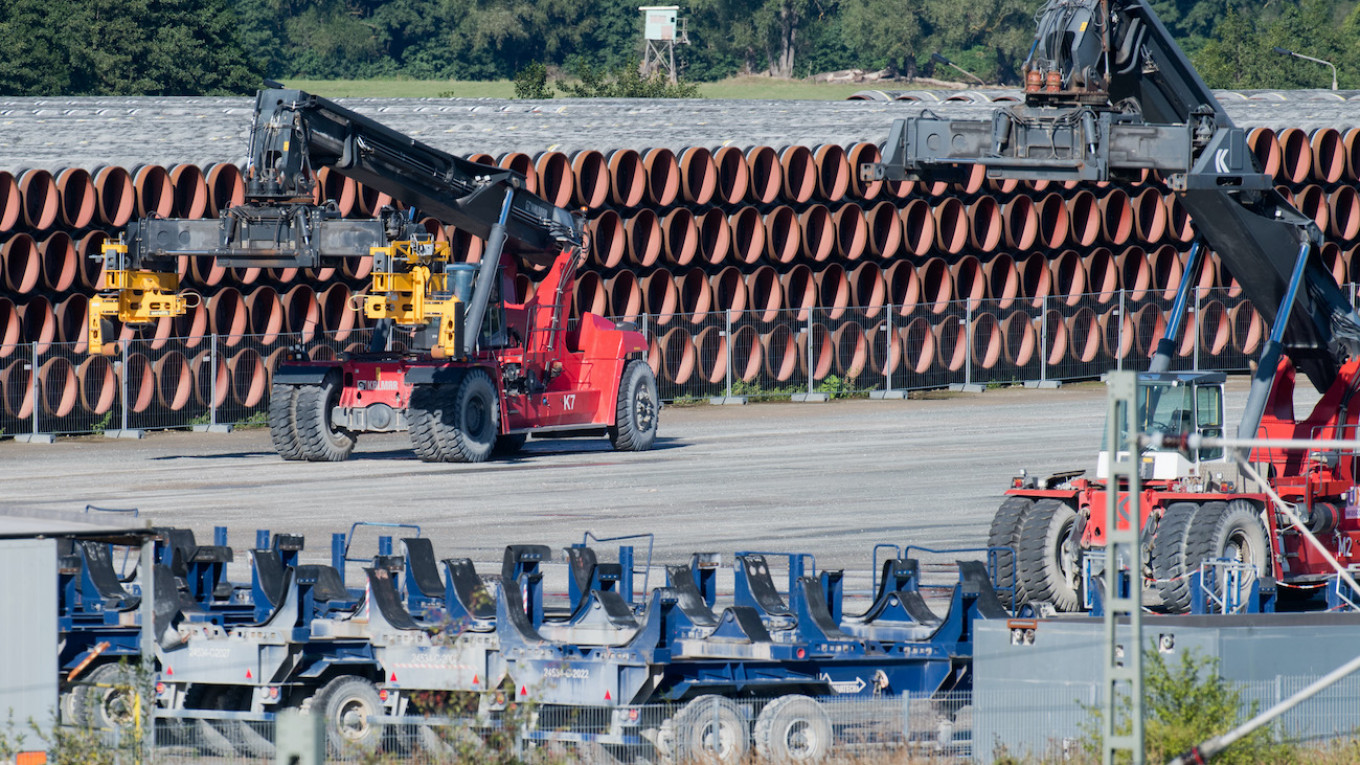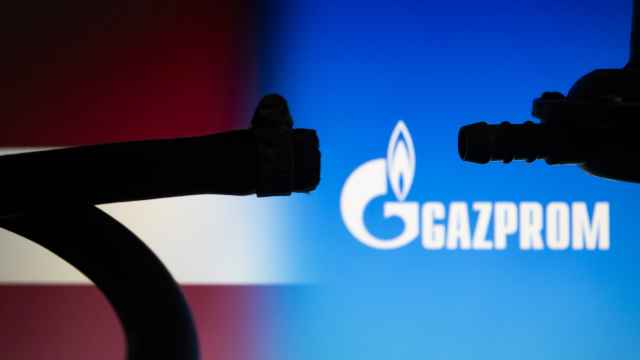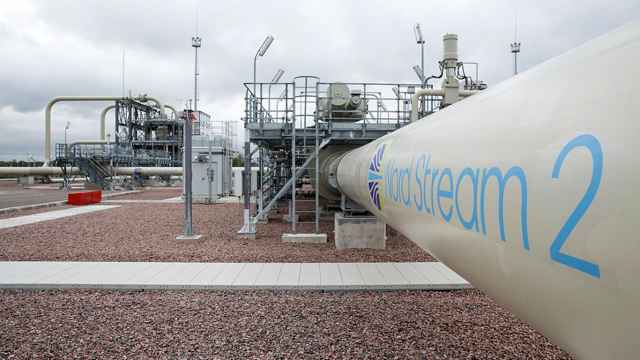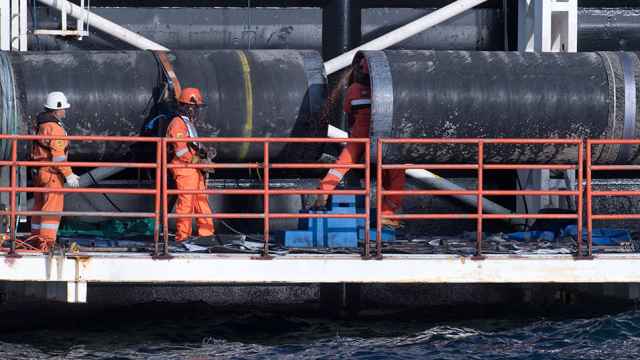Poland’s anti-monopoly service has fined Gazprom more than $7.5 billion over its controversial Nord Stream 2 pipeline.
After a two-year investigation, Polish authorities concluded that the pipeline damages Polish consumers and raised a host of concerns over energy security, market competition and the financial partnership struck between Gazprom and five European energy companies to build and manage the pipeline.
The figure is equal to 10% of Gazprom’s annual revenues, the maximum allowable penalty. Tomasz Chrostny, president of Poland’s Office of Competition and Consumer Protection said the fine was “unprecedented.”
The European companies involved in the project — Engie, Uniper, OMV, Shell and Wintershall — have also been fined a total of $61 million, also equivalent to 10% of their annual turnover.
Speaking in Warsaw on Wednesday, Chrostny said Nord Stream 2 would “harm not only competition … but consumers alike.”
“The launch of Nord Stream 2 will threaten the continuity of natural gas supplies to Poland. An increase in the price of the product is also highly likely, with the said increase being borne by Polish consumers. Completion of this investment project increases the economic dependence on Russian gas — not only in the case of Poland, but also of other European states.”
He added: “It is astounding that Western corporations fail to understand that and participate in an undertaking that not only disturbs competition on the market, but also poses a threat to Europe’s energy security.” The watchdog also ordered the European companies to pull out of the project within 30 days.
Gazprom said Wednesday it will appeal the decision. In a statement, the company said the fine “violates the principles of legality, proportionality and the right to a fair hearing.” It added: “The unprecedented size of the fine indicates a desire to oppose the implementation of Nord Stream 2 by any means.”
“Poland is going to great lengths to create new hindrances for Nord Stream 2,” Maria Shagina, a fellow at the University of Zurich and member of the Geneva International Sanctions Network told The Moscow Times. But, she added that the fine was unlikely to change much.
“U.S. sanctions are the main threat. Plus, Gazprom has a proven record of not complying with legal verdicts,” she said, referring to a battle with Ukraine’s Naftogaz which played out in Stockholm courts. Gazprom took two years to pay Naftogaz a $2.9 billion dollar settlement which had been agreed in arbitration, and only then as part of eleventh-hour negotiations over a new gas transit contract between the two sides.
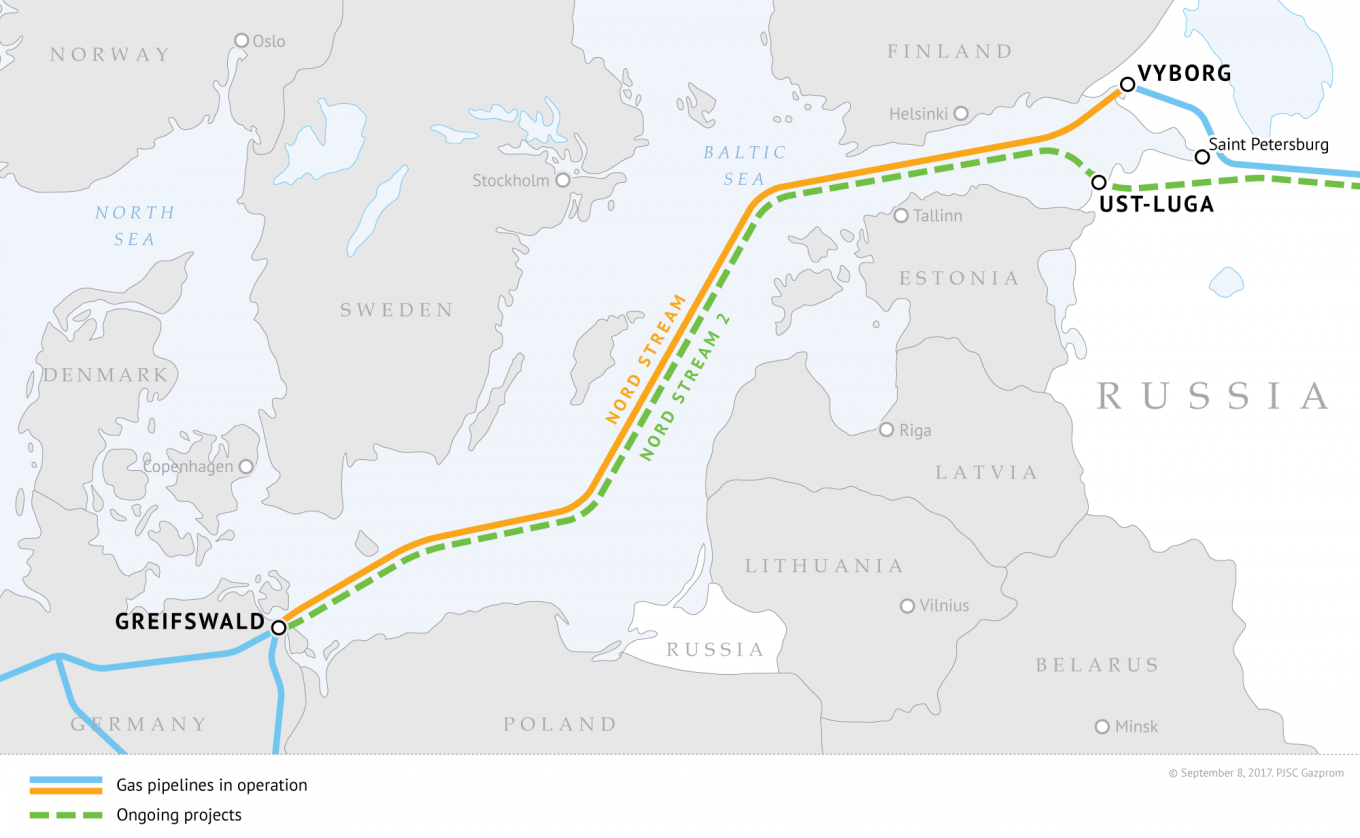
The Polish case stemmed from the country's assertion that the project required approval from its national authorities before going ahead. The Office of Competition and Consumer Protection said the six firms originally filed an application in 2015 regarding the establishment of a joint venture to construct and operate Nord Stream 2. But when it became clear Poland had reservations about the project, the consortium changed its governance model in a bid to circumvent the need for Polish approval.
The Nord Stream 2 pipeline will connect Russia directly to Germany with two twin pipelines running under the Baltic Sea through the territorial waters of Russia, Finland, Sweden, Denmark and Germany. From Germany, Russian gas can then be piped around Europe using existing infrastructure.
Poland has been a long-time opponent of the project, which it says hits Europe’s energy security and increases Russian influence over the continent. Poland first brought charges against Gazprom and its European partners two years ago, and has previously levied multi-million dollar fines against Russia’s state-owned gas giant for not cooperating with the investigation.
The pipeline is more than 90% complete but has been beset by delays after the U.S. intensified its bid to halt construction, threatening sanctions against Western vessels laying pipe. Germany has also threatened to pull its support for the initiative following the poisoning of Kremlin critic Alexei Navalny with Novichok.
The decision comes just days after Poland's Prime Minister Mateusz Morawiecki cited the poisoning of Navalny to urge Germany and other EU partners not to turn a blind eye to human rights when doing business with Moscow.
"It’s also worth considering very deeply whether this isn't a pivotal moment when we should all say that there’s no point in pursuing a project like Nord Stream 2 with Russia," Morawiecki told reporters at an EU summit in Brussels on Thursday.
AFP contributed reporting.
A Message from The Moscow Times:
Dear readers,
We are facing unprecedented challenges. Russia's Prosecutor General's Office has designated The Moscow Times as an "undesirable" organization, criminalizing our work and putting our staff at risk of prosecution. This follows our earlier unjust labeling as a "foreign agent."
These actions are direct attempts to silence independent journalism in Russia. The authorities claim our work "discredits the decisions of the Russian leadership." We see things differently: we strive to provide accurate, unbiased reporting on Russia.
We, the journalists of The Moscow Times, refuse to be silenced. But to continue our work, we need your help.
Your support, no matter how small, makes a world of difference. If you can, please support us monthly starting from just $2. It's quick to set up, and every contribution makes a significant impact.
By supporting The Moscow Times, you're defending open, independent journalism in the face of repression. Thank you for standing with us.
Remind me later.


